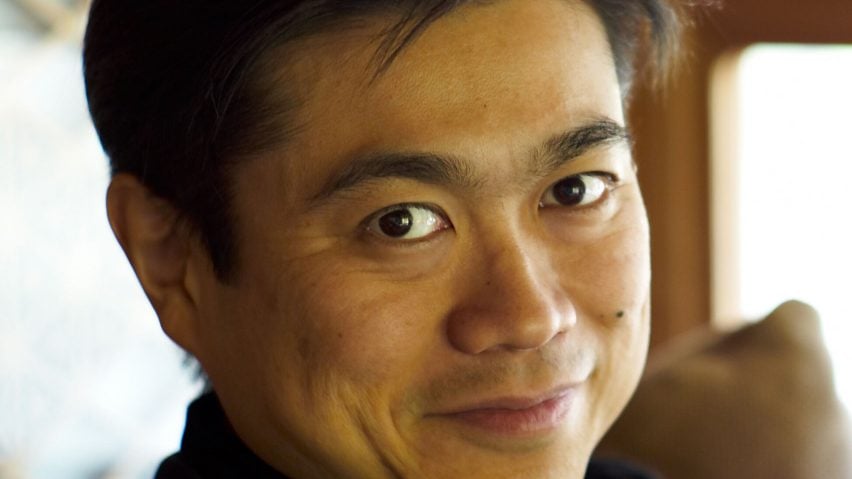
MIT Media Lab director resigns after allegedly covering up Jeffrey Epstein donations
Joichi Ito has stepped down as director of the Massachusetts Institute of Technology's Media Lab after The New Yorker magazine claimed he made efforts to hide donations from American businessman and sex offender Jeffrey Epstein.
Ito's resignation from the research laboratory on 7 September came one day after the magazine reported that he had tried to hide the extent of the relationship between MIT Media lab and Epstein.
The story claims Ito and other staff at MIT Media Lab used a number of measures to veil donations from Epstein after he was officially "disqualified" from the school's donation database, following his conviction as a sex offender.
These include filing donations from Epstein as anonymous, referring to the businessman using only his initials, and listing his visits in the calendar under "VIP guest".
MIT Media Lab starts independent investigation following allegations
The university's president L Rafael Reif released a statement called Fact-finding and action on the Media Lab on the same day as Ito's resignation, announcing that the university was enlisting a prominent law firm to undertake an investigation following the allegations.
"The New Yorker published an article that contains deeply disturbing allegations about the engagement between individuals at the Media Lab and Jeffrey Epstein," said Reif. "Because the accusations in the story are extremely serious, they demand an immediate, thorough and independent investigation."
Ito, known as "Joi", was already under scrutiny after it was revealed last month that he had accepted donations from Epstein. Shortly after these revelations, the New York Times reported that Reif confirmed the school had "received roughly $800,000 in donations from Epstein funds over a 20-year period".
The recent New Yorker piece, however, suggests Ito accepted $525,000 (£525,000) for the lab, as well as $1.2 million (£0.97 million) towards other investments he held personally.
Emails reveal donations cover-up
Led by reporter Ronan Farrow, who helped uncover allegations against Harvey Weinstein that led to the #MeToo movement, The New Yorker investigation quotes from a number of email threads involving Ito.
In one reported incident, the director forwarded an email to Peter Cohen, MIT Media Lab's director of development and strategy at the time, requesting for an Epstein donation to be listed as anonymous. Cohen forwarded this to another colleague with the note: "Jeffrey money, needs to be anonymous. Thanks."
In another email thread, Ito allegedly reveals that a $2 million (£1.67 million) donation from Microsoft billionaire Bill Gates was directed by Epstein. "For gift recording purposes, we will not be mentioning Jeffrey's name as the impetus for this gift," The New Yorker reports Cohen as replying.
Ties come to light after Epstein's death
The multimillionaire's ties to MIT Media Lab came to light after he was found dead on 10 August in New York's Metropolitan Correctional Center, where he was held in custody on a charge of sex trafficking underage girls.
The revelations led to conflict in the school, with professor Ethan Zuckerman and visiting scholar J Nathan Matias vowing to leave the institute. Students also called for Ito to leave his position.
Founded in 1985, the Media Lab focuses on topics such as technology, media, science, art and design, and is highly regarded internationally. Its research groups include designer and researcher Neri Oxman's Mediated Matter, with projects including death masks, "wearable skins", and investigations into how to use silkworms to print architectural structures.
Incident is latest "toxic philanthropy" row
Following the controversy, the New York Times has reported that Ito has also left his position on the boards of three other prominent cultural institutions: the MacArthur Foundation, the John S and James L Knight Foundation and The New York Times Company.
A number of cultural institutions have come under scrutiny this year over funding from sources deemed to be unethical, in a backlash against "toxic philanthropy".
New York City's Whitney Museum vice chairman Warren Kanders resigned in July following months of protests against his ties to the manufacture of tear gas used against migrants at the US-Mexico border.
Earlier this year, Yana Peel resigned as CEO of London's Serpentine Gallery.
Photography is by Mizuka.
Updated February 2020
Following a legal complaint, the Guardian removed its article of 14 June 2019 and apologised to Mrs Peel. We are happy to clarify that Yana Peel is not, and was not, personally involved in the operation or decisions of the regulated Novalpina Capital investment fund, which is managed by her husband Stephen Peel, and others. Mrs Peel was not involved in any decision-making relating to the fund’s acquisition of NSO. Mrs Peel only has a small, indirect and passive interest in the fund. She does not own, whether directly or indirectly, any Novalpina Capital entity.